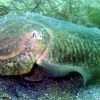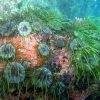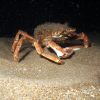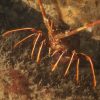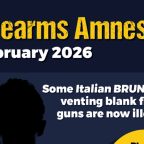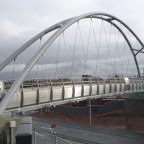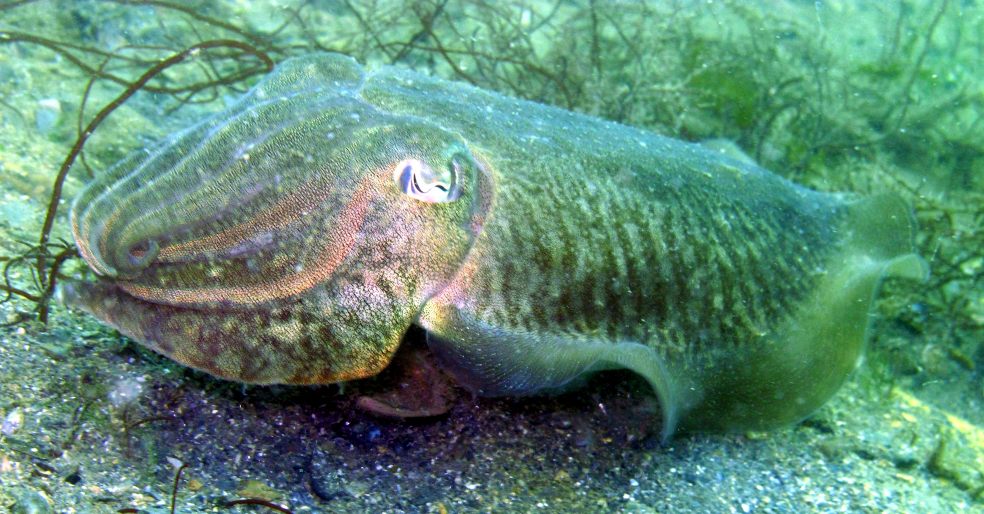
Help needed for underwater habitats and wildlife
The Marine Conservation Society (MCS), the UK’s leading marine charity, says reefs, eelgrass beds, cuttlefish, crawfish and short snouted seahorses are among the south Devon underwater habitats and wildlife that need better protection from damaging activities.
Two areas of the county’s coastal waters are among 31 that are currently the focus of a Government public consultation and could be designated as Marine Conservation Zones (MCZs) later this year.
But MCS says that the Torbay and Skerries Bank (southeast of Start Point) proposed MCZs will only benefit from protection if it is properly implemented and well managed.
The MCS volunteer diving programme ‘Seasearch’, surveyed these two areas last summer to gather fresh information on the current state of both habitats and species. What the divers found were pockets of rare and vulnerable species and wider areas of underwater environments that will not recover from damage unless bottom towed fishing gear, coastal development, mooring and potting are effectively managed.
Government scientists had already identified Torbay and Skerries Bank as two of 59 proposed MCZs in English waters that need immediate protection to stem further damage. Stakeholders, scientists and environmentalists had urged the Government to designate no fewer than 127 MCZs. Concern has already been voiced at the low number proposed by Defra which rejects the recommendation of the independent scientists, and the Government’s own seemingly low ambitions for recovering the marine environment.
MCS Biodiversity Policy Officer, Dr Jean-Luc Solandt, says the fact that these two Devon sites are among the crucial list of 31 is great news, and protection from seabed trawling would make the area richer for biodiversity and low level fishing activities.
“Both Torbay and Skerries Bank are areas of the seabed that are surviving on borrowed time. Both have parts that are threatened by bottom trawling and scallop dredging. Torbay’s extensive seagrass beds can be damaged by dredging and indiscriminate anchoring. Seasearch divers at Hope’s Cove saw damage to eelgrass beds which could have been a result of local anchoring.”
Dr Solandt said if damage were restricted from within the area of the seagrass beds, they would become more dense, productive, and become a more significant habitat for species like cuttlefish and other species on which to lay their eggs.
The Skerries Bank, just to the southwest of Torbay is an area made up of undulating sandbanks, and is home to mobile species such as rays, flatfish, sand stars, spidercrab and hermit crabs.
The Seasearch team said they didn’t see any crawfish at Skerries Bank – the only species for which recovery is the conservation objective of the MCZ.
“MCS suggests a ‘no take zone’ could be introduced within the site to recover some small areas of larger lobsters, or more specifically, a restriction on crawfish landings from the area – although we understand that local pot fishers generally put back any crawfish caught in pots, and we would encourage a continuation of this practice.
At Lundy Island, off the North Devon coast, following 10 years with a 3.3km2 no-take zone, Seasearch divers saw a recovery of crawfish populations in 2012. Lobsters have also become larger inside the zone. Larger females produce more eggs, thus eventually resulting in greater numbers of ‘new/baby’ lobsters exported to areas outside the zones,” said Dr Solandt.
MCS says the public must take this opportunity to have it’s say on the future protection of our seas. By taking part in the consultation, people who are familiar with the waters around Devon, like scientists, divers, sea anglers, surfers, fishers or simply those with local knowledge of the area, can add their personal story and anecdotes to the consultation process by visiting www.mcsuk.org/mpa/england










